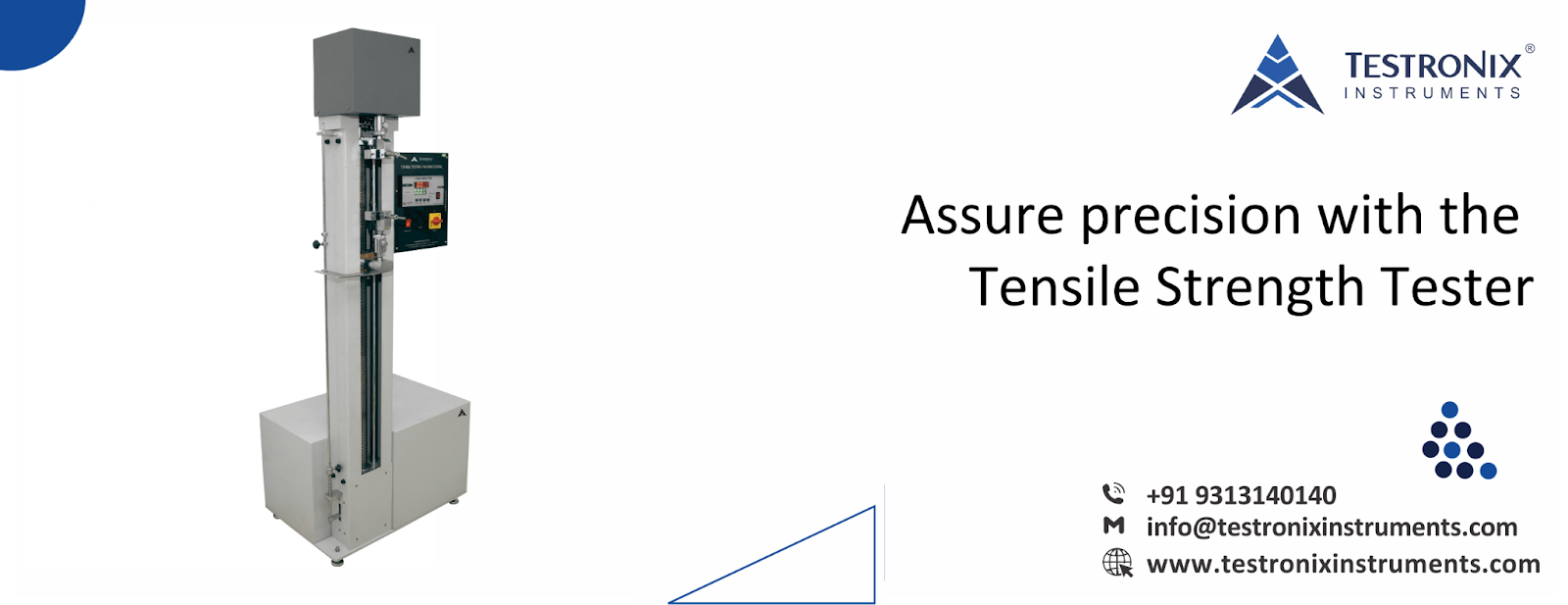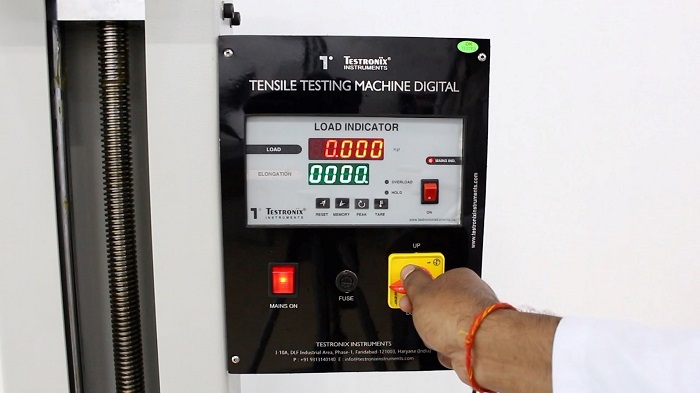Reviewed by Anurag Mishra (Sr. Technical Consultant)

Understanding the tensile strength of materials is essential throughout numerous industries—from manufacturing to research and development. A tensile strength tester is the first instrument to decide how substances react to tensile forces.

Securely mount the specimen among the grips of the tensile strength tester. The grips can be mechanical, pneumatic, or hydraulic, depending on the sort of tester.
Take a look at the parameters which include load fee (crosshead speed), gauge length (distance among grips), and testing conditions (temperature, humidity).
Also read: How does a digital tensile tester work?
Selecting the proper tensile strength tester includes thinking about numerous factors (according to tensile strength tester manufacturer):
1. Capacity and Range: Determine the maximum pressure (load capacity) required for your applications. Choose a tester that could accommodate the substances and specimen sizes you would be dealing with.
2. Accuracy and Precision: Look for a tester with accuracy and uniformity in measurements. Consider calibration requirements and certifications to ascertain dependable results.
3. Test Speed and Control: Evaluate the different speeds (crosshead speeds) and the working mechanisms (manual, semi-automatic, or completely automatic) of the tester.
4. Software and Data Handling: The Testronix tensile strength tester uses advanced software to analyze and record data.
5. Safety Features and Compliance: Ensure the tester meets protection requirements and regulations. Features that include emergency prevent buttons, overload protection, and protection enclosures are critical for secure operations.
A1. Tensile strength is the most strain a cloth can face - even when being stretched or pulled (before breaking). Yield energy, on the other hand, is the strain at which a cloth starts to deform without breaking.
A2. Specimens are usually organized by slicing the fabric into standardized shapes (which include canine bone or dumbbell shapes) with unique dimensions. Much care is paid to specimen orientation and floor end to decrease strain concentrations.
A3. Yes, tensile strength testers are designed to carry out assessments consistent with global requirements, making sure that the outcomes are reliable, comparable, and conventional. These requirements are important for industries, especially manufacturing, aerospace, automotive, construction, textiles, plastics, and biomedical sectors in which cloth energy and overall performance are critical.
A tensile strength machine is calibrated and built to stick to diverse global requirements including ASTM International (previously called the American Society for Testing and Materials), International Organization for Standardization (ISO), and Deutsches Institut für Normung (DIN). These requirements outline precise methods, methodologies, and standards for engaging in tensile assessments on distinctive substances to ensure consistency and accuracy in outcomes.
1. ASTM Standards: It is an important benchmark that covers a variety of substances. For instance, ASTM E8/E8M specifies the methods for working with steel-related products.
2. ISO Standards: ISO requirements offer pointers for assessing substances in diverse industries worldwide.
Compliance with global requirements guarantees that tensile strength tester supplier’s assessments are performed consistently throughout distinctive laboratories and countries. This consistency is important for manufacturers, engineers, and researchers to make knowledgeable choices about cloth selection, product design, and great assurance. Standardized experiment methods also facilitate comparisons of outcomes of distinctive substances and suppliers, assisting product certification processes.
Also read: Importance of Tensile Strength in Packaging
1. Reliability: Following standardized methods complements the reliability of tensile strength check outcomes, decreasing variability because of distinctive methodologies.
2. Quality Assurance: Manufacturers can use standardized testing to make sure that substances meet particular mechanical guidelines and overall performance standards, enhancing product outcome and reliability.
3. Global Acceptance: Products examined consistently with global requirements are much more likely to be conventional in international markets because the test outcomes are diagnosed and relied on worldwide.
Mastering using tensile strength equipment is critical for comparing the mechanical features of substances correctly and reliably. By following standardized assessment procedures, deciding on the proper equipment, and knowing the nuances of fabric ( as they behave under tension ), industries could make knowledgeable selections concerning fabric selection, excellent control, and product development. Tensile strength testers play an important function in ensuring the protection, reliability, and overall performance of substances throughout numerous applications.
Want to know the tensile strength tester price? Reach out to us through a phone call at +91-9313140140 or directly drop us an e-mail at info@testronixinstruments.com